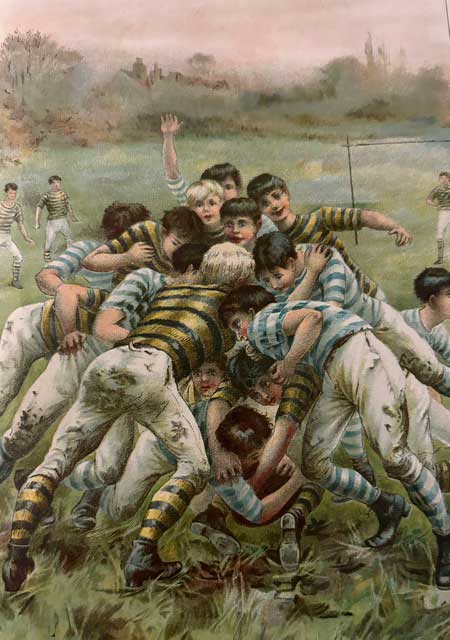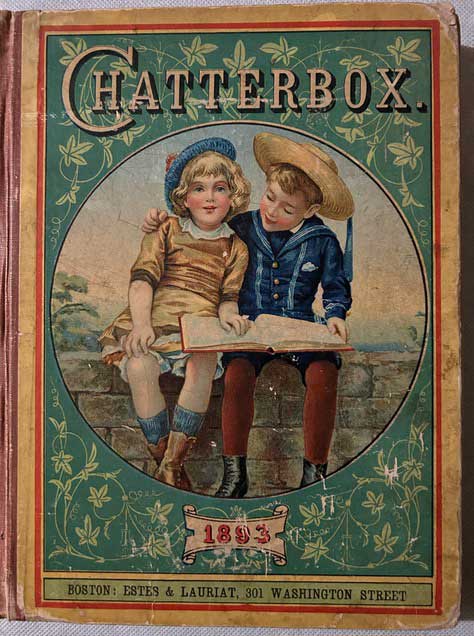April 2023
Vintage Discoveries
One of my Dad’s treasures was unique ‘Chatterbox’ book
by Ken Weyand
Childhood Books
As an impoverished orphan in 1900, my dad had few possessions. Luckily, his older sisters supplied him with a few books and other items that helped him survive his childhood.
One of the books that found its way to my attic was ‘Chatterbox,’ a hardback of more than 400 pages. Published annually in the U.S. by Dana Estes and Charles E. Lauriat in Boston, and edited by J. Erskine Clarke, my book was released in 1893, the year of my dad’s birth. Florence, oldest of the eight orphans, gifted it to my dad and Grace, another sister.
My book is well-worn, its hard cover barely connected to crumbling spine by a few threads. Several pages are torn, with two or three missing. Still, it’s a fascinating look at children’s literature of that era.
Etsy, an online retailer, states that ‘Chatterbox’ began as a weekly publication for children in the U.K. by Clarke, a British clergyman who had published the first parish newspaper. Featuring children’s stories, it was also printed in book form, in both U.K. and U.S. editions, the first published in 1866. According to Wikipedia, Clarke established churches, schools and hospitals in the U.K. and was made honorary chaplain to Queen Victoria and later to King Edward VII.

“Scrimmage” made present-day backyard football look tame.

Chatterbox Books
‘Chatterbox’ was a popular book for children on two continents. (Ken Weyand collection)
Two versions of the book were offered: one with ads and one without. My book has ads, but only on the inside covers and back cover. One of the ads promotes “Crosby’s Vitalized Phosphites, a brain food … invaluable to the nursing mother, weakly women, pale undeveloped girls, and the aged.”
Typical of books of its day originating in Europe, ‘Chatterbox’ depicts black people as savages, describing them in terms that are considered racist by today’s standards. A long article, “Amongst the Caffres,” begins on page 3 and continues throughout most of the book. It refers to what most white settlers in South Africa called blacks in the late 1800s.
Ken Weyand is the original owner/publisher of Discover Vintage America, founded in July 1973 under the name of Discover North.
Ken Weyand can be contacted at kweyand1@kc.rr.com Ken is self-publishing a series of non-fiction E-books. Go to www.smashwords.com and enter Ken Weyand in the search box.

